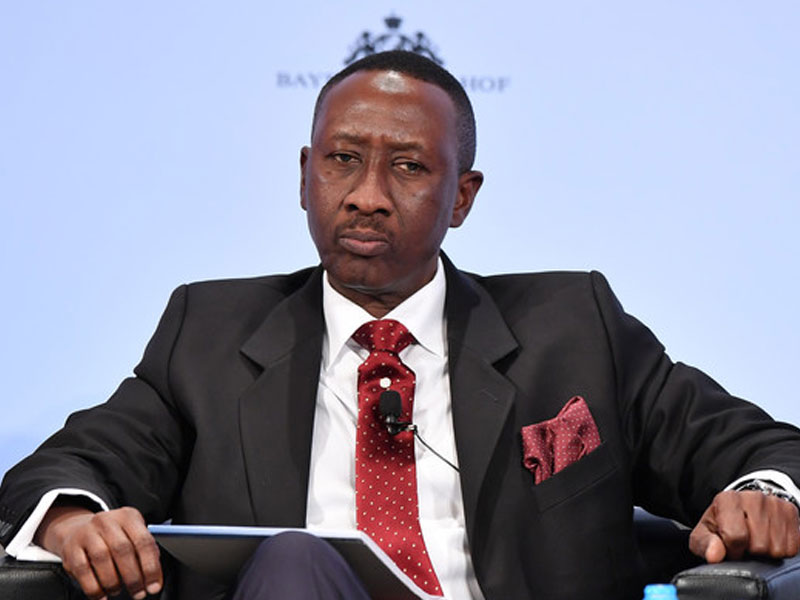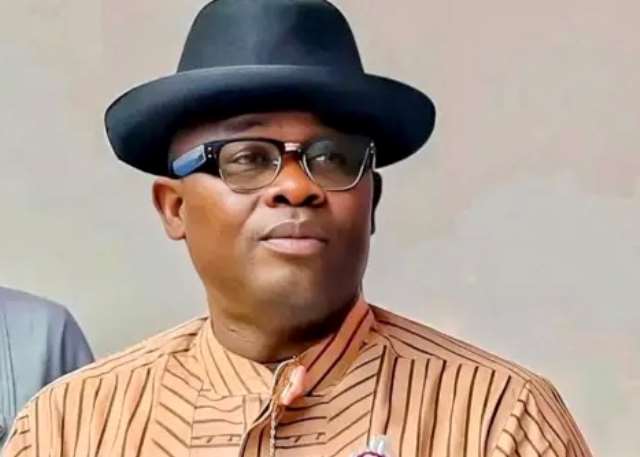- As FG reiterates commitment to improve education, health, security
The National Security Adviser, Maj. Gen. Babagana Monguno, has stated that the key to ending the insecurity in the north is to deal with the Almajeri system, hence it will eventually hunt the nation in future.
The National Security adviser gave the advice during the launch of the Revised National Security Strategy 2019, by President Muhammadu Buhari, on Wednesday, at the Council Chambers of the Presidential Villa, Abuja.
Prior to the launching, Monguno, gave the highlights of the new strategy, which was reviewed from the first one of 2014.
According to Monguno, the 60-page document is a product of extensive and rigorous collaboration, focusing on human security, with provisions to tackle present and anticipated threats.
Speaking more on the Almajiri system and the security situation in the North, he said: “Now, what the strategy does is to look at our national security objectives and align these objectives with this administration’s goals in fighting corruption, giving access to improved education, taking care of the healthcare problems as well as increased productivity in the agriculture sector. But rooted in the strategy are issues that may not be visible to the naked eyes, but issues that have tended to be malignant to cause a lot of greater problems to this society.
“Fundamentally, if we are going to take care of these problems, we need to try and safeguard the fast-growing young population of Nigeria and guess what? We need to look at issues of poverty eradication and illiteracy.
“The issue of illiteracy is directly linked to the issue of children not going to school; this Almajiri phenomenon which we have been talking about. We cannot continue to push it under the carpet because eventually, it will come back to bite us in the bud big time. We need to deal with this issue and it is the responsibility of all of us to try and take care of this issue without any inhibition.”
President Buhari, while launching the strategy explained that the new road map was a product of elaborate discussions between all security organs and Ministries, Departments and Agencies (MDAs) of the government.
He further reiterated his administration’s commitment to improve on education, health and security in his second term, adding that the numerous security challenges confronting the nation made it necessary to come up with articulated, comprehensive and coordinated response that involves all segments of the society and all elements of the national power.
According to him the strategy represents “a thoughtful, strategic and practical expression of our resolve to make Nigeria safe development, investment, growth and prosperity for everybody.”
He said: “As we continue to work towards completely ending insurgency in the north east and laying the foundation of sustainable peace and development in the region, we are also addressing conflicts between farmers and herders, banditry and various forms of security challenges.
“In addition to security, economic diversification and fighting corruptions, our administration priorities for the second term include pursuing improvements in education, healthcare and agriculture.
“These priorities reflect our commitment to enhancing the social security of Nigerians, as a means of improving their physical security. I’m happy to observe that the National Security Strategy reflects this thinking with emphasis on overall human security.
“I’m pleased also to know that the strategy emerged after a long time consultative and participatory process that elicited contributions primarily from our security, intelligence, law enforcement agencies and the armed forces.
“The task that now lies before us is the execution of the strategy and the achievement of a safer and more secured nation. It is a task to which this administration remains fully and unreservedly committed.”
The President also commended the National Security Adviser and his team for delivering on the document.
Top officials present at the launch includes, the Vice President, Yemi Osinbajo; Deputy Senate President, Ovie Omo-Agege who represented the Senate President; Speaker of the House, Femi Gbajabiamila and service chiefs and other heads of security agencies.
























Leave a comment